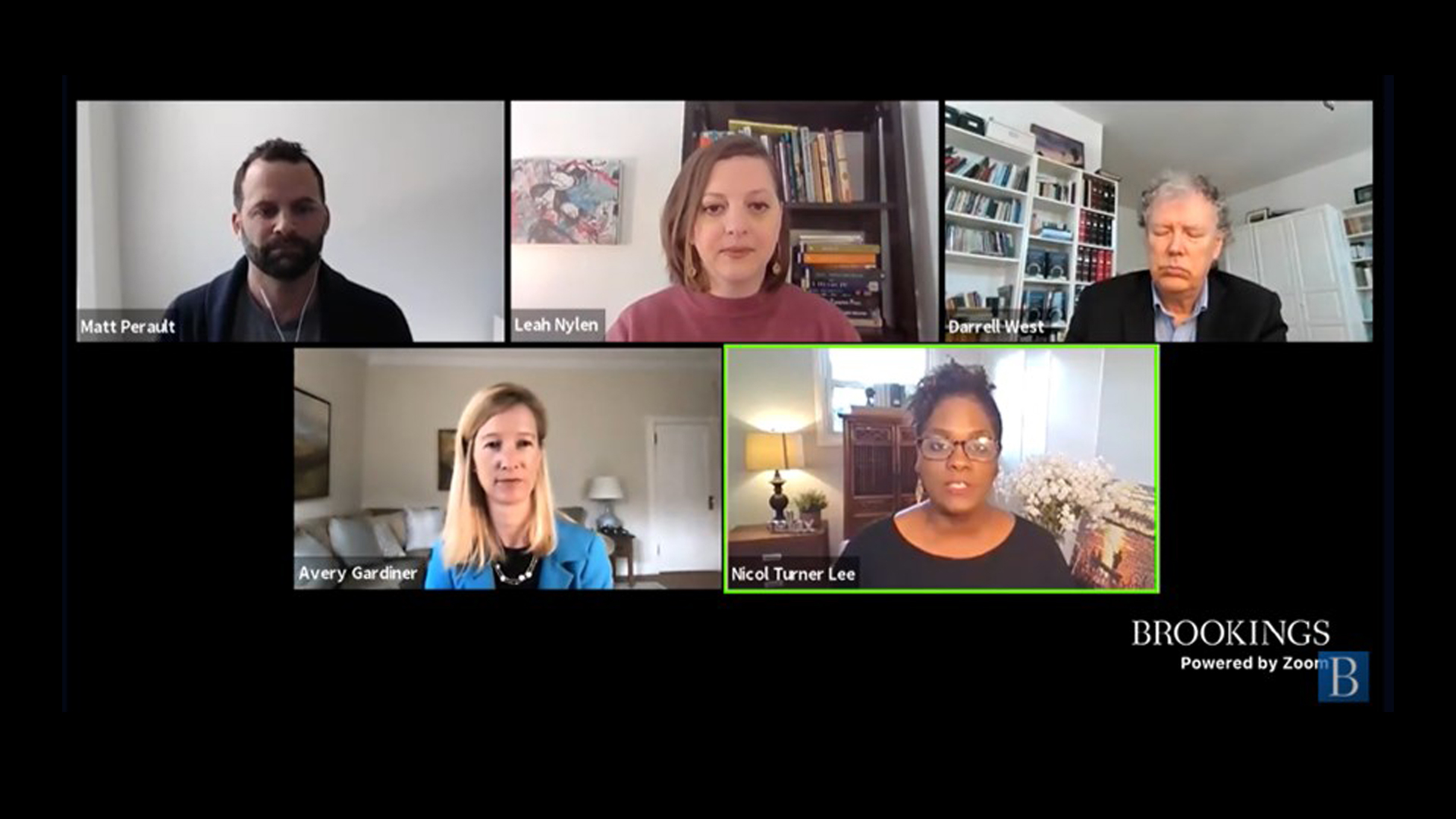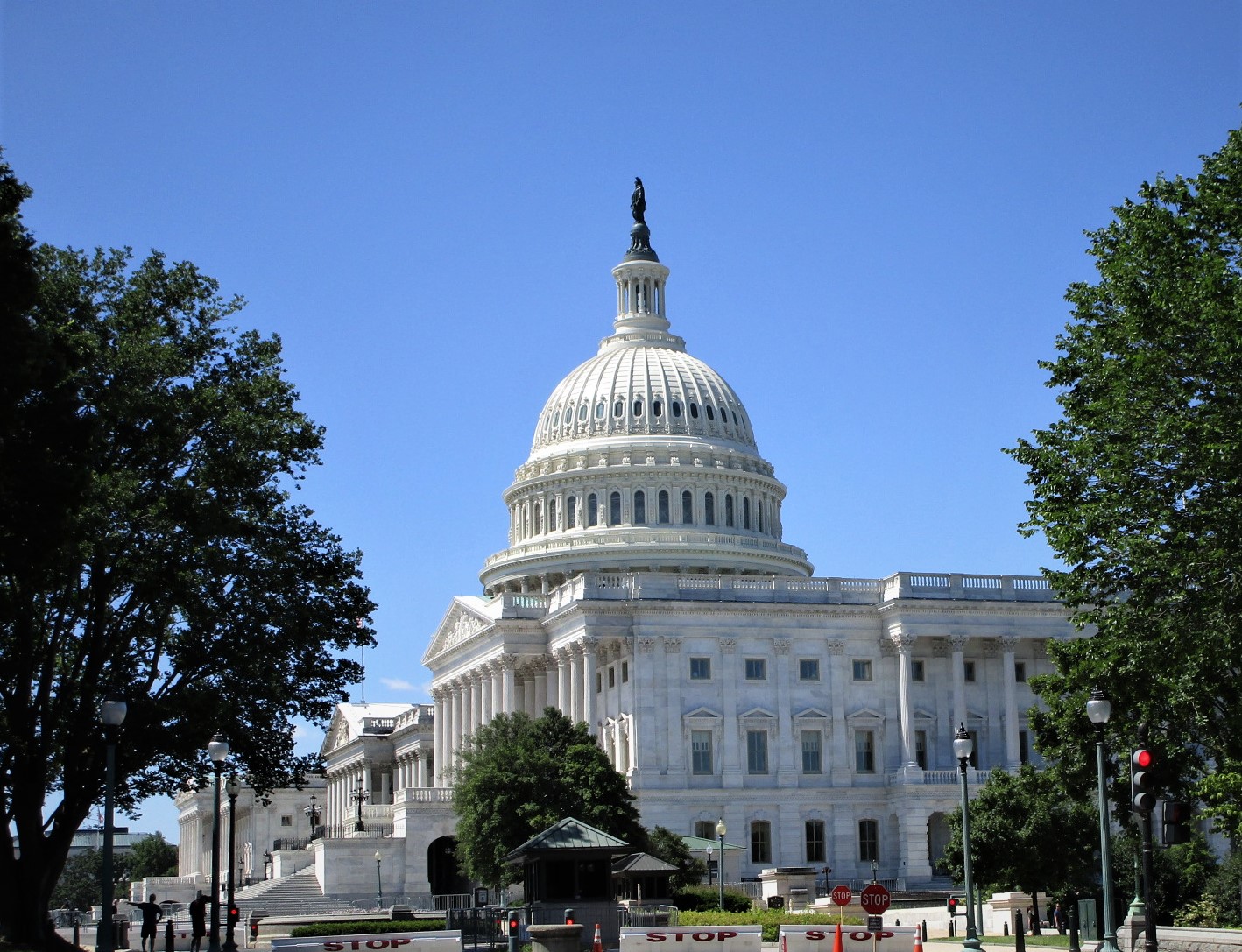It’s the Most Wonk-iful Time of the Year
Broadband, antitrust, copyright, security recommendations for ’21 abound, but think tanks restrain telecom policy prognostications
The smarter way to stay on top of the multichannel video marketplace. Sign up below.
You are now subscribed
Your newsletter sign-up was successful

Underscoring the policy uncertainty in Washington right now: there’s a dramatic drought of the usual think tank and lobbyist predictions that materialize between Election Day and the opening of the new Congress and/or Inauguration Day. In most election years, policy wonks trot out forecasts (and/or wishful thinking) about what will fill Washington’s legislative and regulatory agenda, with telecom/media and tech prognostications often among the liveliest categories. Their outlooks are typically mixed with policy recommendations and are frequently unveiled at hyped presentations as analysts and journalists look for a policymaking agenda for the new Administration and Congress (and nibble at the catering tables that accompany such events).
For 2021: not so much.
Only a handful of seers and solons have offered their outlooks in recent weeks, and they have primarily been wan wonk-wise. The predictable roster includes ideas about antitrust, copyright, privacy, cybersecurity, mending the digital divide and resolving broadband issues – depending on which side is offering solutions. And of course, the sessions - if they existed at all - were virtual.
The Brookings Institution kicked off the seer season with a Zoom seminar on “The Future of Tech Antitrust in the Biden Administration.” With recent lawsuits against Facebook and Google, much of the focus was on the possible breakup of those behemoths.
Avery Gardiner, general counsel and senior fellow at the Center for Democracy & Technology, contended that the Biden team would dedicate more resources to antitrust than has been done in the past 20 years. She said the goal will be to see if new laws are “flexible enough to handle the digital economy.” Gardiner also warned that it is hard to approach antitrust “from a regulatory angle, [since] we don’t regulate it.”
“It’s an enforcement issue,” she insisted, contending that competition policy “will be incredibly important for the new administration.”

Also Read: 'Landmark' Copyright Act Reform Proposed
The smarter way to stay on top of the multichannel video marketplace. Sign up below.
The role of digital platforms (notably those of Google, Facebook, Apple and Amazon) quickly became part of the discussion. Matt Perault, director of the Center on Science & Technology Policy and Associate Professor at Duke University, said he expects that “antitrust [will] move beyond platforms,” expecting federal examinations to include more than those four firms.
“We should develop policies that apply to a broad set of companies,” he said, noting that the prospects for sweeping reforms such as Glass-Steagall legislation (the defunct financial separations laws) are “off the table, so specific reforms are more likely.” Perault acknowledged that such restrictions become “more difficult as companies move into different categories.”
Nicol Turner Lee, senior fellow at Brookings and director of its Center for Technology Innovation, put the spotlight on Vice President-elect Kamala Harris, calling her a “dealmaker who will go behind the scenes” based on her background in California with some of the target companies. But Darrel West, also a Brookings senior fellow and Vice President added a political reality. He pointed out that if Biden serves only one term and Harris runs for President in 2024, “She’ll be careful about what she does to cover herself.”
In a document accompanying the seminar, Brookings cited what it expects to be the policy skirmishes for the coming year:
Recommendations Rather Than Predictions
Many of this year’s slew of visions took the shape of reports, such as the Next Century Cities’ case studies on broadband connectivity. NCC’s Executive Director, Francella Ochillo, summarized the findings as evidence of the need to use all available resources “to ensure that residents are able to get online.” The NCC study found that communities recognize the importance of both “broadband access and adoption needs, not one or the other.”
“Addressing these persistent digital divides require meaningful investments from every level of government coupled with public and private partnerships that reflect the magnitude of the problem,” Ochillo said.
Several think tanks reverted to shopping lists, loaded with the reliable staples of policy reforms. For example, the Technology Policy Institute, which focuses on the economics of innovation, technology and related regulation, issued “Ten Tech Principles for the Biden Administration,” half of which deal with broadband and regulatory reform. TPI’s roster calls for action to tackle the digital divide “through data-driven approaches” and employing market-based mechanisms for allocating spectrum.
“Do not treat broadband as a public utility, as that is likely to slow investment and innovation and increase prices,” TPI urged, recommending that policymakers should “rethink positions on net neutrality, particularly with respect to paid prioritization…which may be useful for socially productive services such as telemedicine and education.” TPI also warned that the Defense Department and other agencies should not be allowed to control spectrum policy.
The Information Technology and Innovation Foundation combined a video webinar with its recent “Analysis of U.S. Broadband Policy” report for its transition-season evaluation of “what has worked well and what has not.” It found that much still remains to be done to remedy the digital divide, and that attempts at mandating facilities-sharing obligations or open-ended net neutrality rules have failed. The ITIF webinar was also an approximate anniversary celebration (10 years for the National Broadband Plan and 25 years for the 1996 Telecommunications Act) – with nudges to reexamine and update both documents.
In particular, ITIF’s report offered the complex opinion that government has “a critical role to play in the broadband marketplace” – but it should be done carefully. For example, it contends, “closing these digital divides does not even logically support a call for more intrusive regulation of the broadband industry. To the contrary, such regulation would, if anything, make the underlying problems worse by placing a thumb on the scale against additional broadband investment.”

Plus Gossip and Rumors
Several of the transition period reports and conversations touched on the overdue update of the 1996 Telecom Act. Even former FCC Commissioner Michael O’Rielly, in his swan-song news conference after his final Commission meeting in mid-December, said, “a rewrite is in order,” citing that “the marketplace has changed since ’96.”
Meanwhile, President-Elect Biden has begun to fill in the Plum Book, the legendary roster of political appointees beyond the usual high-profile heads of agencies. As we await official announcements of Attorney General (and other Justice Department jobs), chairs of the FCC, FTC and other top regulators, gossip bubbles up about other jobs.
The names of media moguls Robert Iger (longtime Disney chief) and Jeffrey Katzenberg (of assorted credentials) might become ambassadors, possibly to the United Kingdom and China, said The Hollywood Reporter. It also mentioned that producer Matt Walden, husband of Walt Disney Television chairman Dana Walden, could be considered as an ambassador in Europe, citing his long friendship with entertainment attorney Douglas Emhoff, husband of Vice President-elect Kamala Harris.
Predictably, Biden’s office had nothing to say about such speculation.
Contributor Gary Arlen is known for his insights into the convergence of media, telecom, content and technology. Gary was founder/editor/publisher of Interactivity Report, TeleServices Report and other influential newsletters; he was the longtime “curmudgeon” columnist for Multichannel News as well as a regular contributor to AdMap, Washington Technology and Telecommunications Reports. He writes regularly about trends and media/marketing for the Consumer Technology Association's i3 magazine plus several blogs. Gary has taught media-focused courses on the adjunct faculties at George Mason University and American University and has guest-lectured at MIT, Harvard, UCLA, University of Southern California and Northwestern University and at countless media, marketing and technology industry events. As President of Arlen Communications LLC, he has provided analyses about the development of applications and services for entertainment, marketing and e-commerce.

